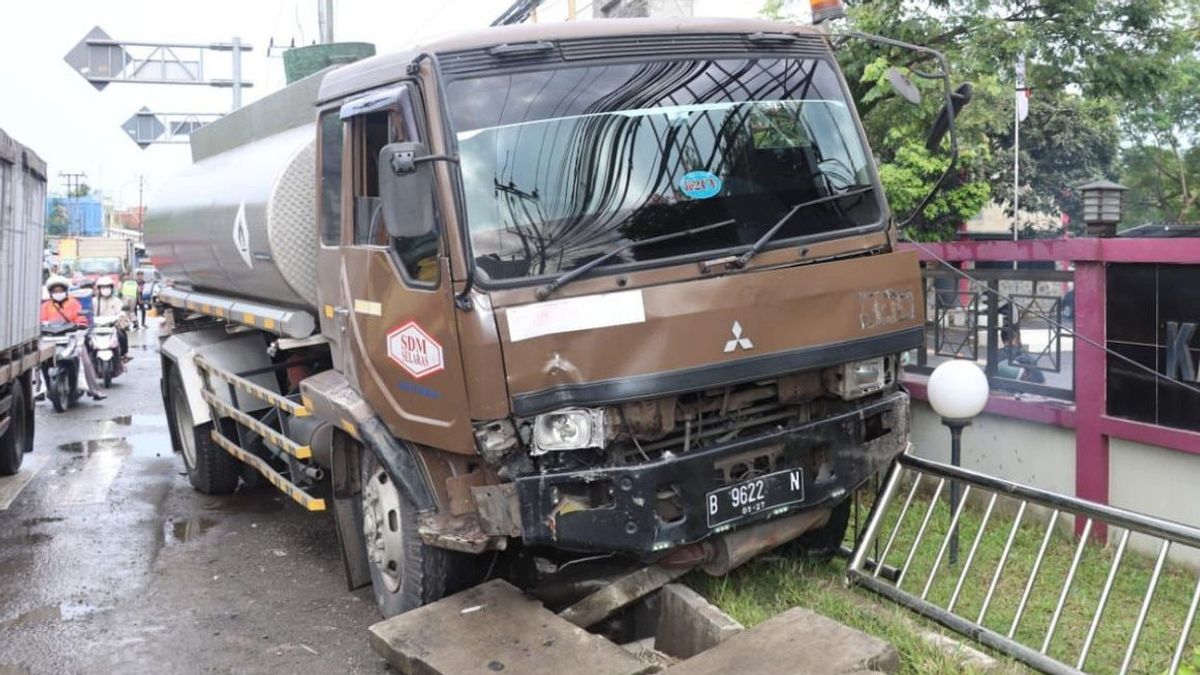YOGYAKARTA The case of an accident caused by a malfunctioning braking system or a failed brake on large vehicles, such as trucks, is still common. Most recently, a truck experienced a failed brake and hit a number of vehicles that stopped at the red light at the Bawen toll exit intersection. As a result of the accident, four people were reported to be dead. So, why are trucks often braked blogs?
As an information, brake failure is a condition in which brake grip power is reduced due to excessive heat. When the brakes are too hot, the ability to stop the wheels fades less. This condition is very worrying because it can endanger other road users.
The following is an explanation why trucks often experience failed brakes.
Highway Safety Practitioner and founder of Jakarta Defensive Driving Consulting (JDDC) Jusri Pulubuhu said that cases of failed brake trucks often occur because drivers do not understand the vehicle braking system.
"In trucks, there are various types of brakes such as service brake, exhaust brake, and parking brake, each with different functions. For full air brakes (which are often used on trucks), it should not be used for routine slowdown or significant slowdown. On the other hand, we can use an exhaust brake that can prevent overheating in braking systems," said Jusri, launching VOI.
Jusri emphasized that the role of drivers is very important in preventing accidents, including how to operate brakes, control vehicles, and other things. Unfortunately, in Indonesia, this is often ignored.
"In Indonesia, trucks often use service brakes when braking, emitting smoke and when sliding, the coupling is neutralized. This is a very dangerous behavior and should be avoided. The absence of exhaust brake can cause overheating in braking systems, resulting in loss of clove power and often referred to as 'blong brakes'," added Jusri.
Jusri also noted that this behavior has become commonplace on Indonesian highways, including toll roads. However, truck drivers often do not consider the risks that may occur as a result of this behavior.
He added that this problem was not only caused by the negligence of the driver, but also by the lack of attention from various parties, including the government, company, and society.
"The government needs to increase standardization, companies must be stricter in the selection of driver recruitment and training, and the public must also pay more attention to safety in choosing transportation," concluded Jusri.
Meanwhile, Senior Investigator of the National Transportation Safety Committee (KNKT) Ahmad Wildan said, one of the reasons why trucks often get lost is backfeeding. This is a condition where brake camps are unable to withstand excessive heat so that they turn into perfect slippery.
Backfeeding can occur in the hydraulic type truck brake system. The cause of the backfeeding is that the truck carries too heavy a load or braking at incline and derivative conditions.
If this happens, the brake camp will experience excessive heat so that the brake grip will drastically decrease.
Windtails are a condition of lack of air pressure. This condition can occur in the Air Over Hydraulic (AOH) and full air brake brake systems that carry air tanks.
Air pressure on the brake system can be known by the driver through indicators in the cabin. If the air pressure is below 7 bars (windtails), the truck driver will not be able to press the brake pedal.
Vapor lock is the cause of the failed brakes that occur in the hydaulis and AOH brake systems that rely on brake oil. Brake failed can occur when water infiltrates the braking system that should be vacuum and works hidaulis.
The point of boiling the brake oil is 250 degrees Celsius depending on the DOT but when there is water content just a little the boiling point drops 50 degrees. When the heat boils, bubbles appear. This bubble goes into the cylindr brake, so we call it a fake wind, which goes into the master brake, "explained Wildan.
That's information about why trucks often brake failed. Get news updates of other options only on VOI.ID.
The English, Chinese, Japanese, Arabic, and French versions are automatically generated by the AI. So there may still be inaccuracies in translating, please always see Indonesian as our main language. (system supported by DigitalSiber.id)








